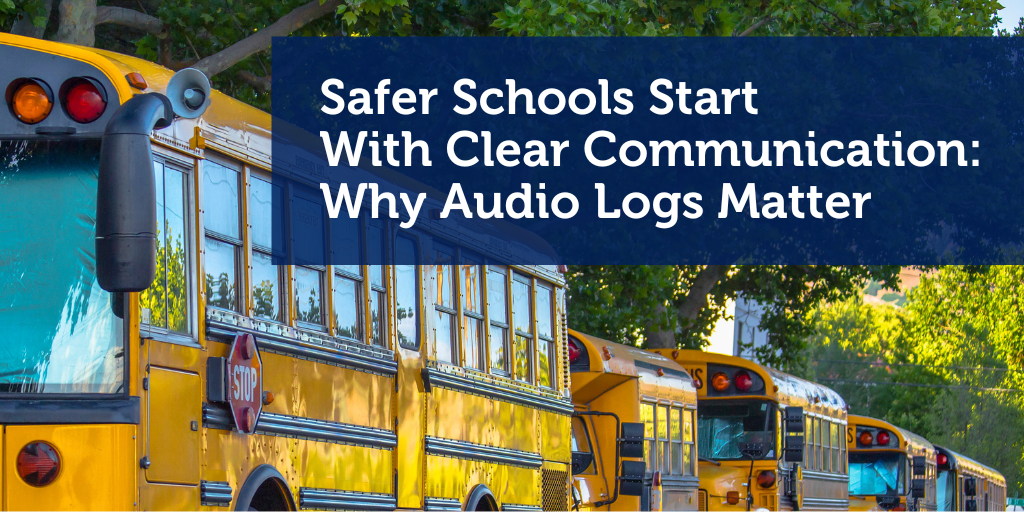Emergencies on school campuses unfold quickly, and when they do, communication isn’t just helpful—it’s vital. Whether it’s a burst pipe, a student health scare, or a campus lockdown, a school’s ability to relay clear, immediate information can determine how effectively it responds.
But what happens when communication breaks down, and no record exists to explain what went wrong? Without reliable, recorded exchanges, critical knowledge can vanish. This is why a lot of schools are turning to digital communication logs and audio recorders—not just as a convenience, but as a key part of their safety and accountability strategy.
Why Audio Records Matter More Than Ever
Audio recording tools ensure that accurate, timely messages are delivered and documented. This helps:
- Prevent misinformation: Clear recordings ensure everyone receives the same message, reducing panic and confusion.
- Support crisis response: In some systems, pre-recorded emergency messages can be triggered instantly, giving staff and students instructions even before help arrives.
- Aid investigations: If something goes wrong, recordings offer an objective, time-stamped account of what was said and done.
These benefits don’t just help schools respond better—they help them learn from every incident, improving preparedness moving forward.
Beyond Emergencies: Everyday Advantages
It’s not just about emergencies. Digital communication records play a crucial role in daily school operations too:
- Staff training and coaching: Reviewing recorded calls helps educators improve their communication with families and colleagues.
- Dispute resolution: When misunderstandings arise between staff and parents, recorded calls provide a clear, objective record.
- College admissions and expectations: Post-secondary institutions benefit from reviewing applicant interactions to ensure clarity and follow-through.
In every case, recordings offer transparency, consistency, and the chance to correct course quickly when needed.
Why Digital Logs Beat Handwritten Notes
Traditional paper logs are difficult to manage, prone to loss or error, and can’t keep up with the demands of modern school environments. Digital communication systems streamline the process and offer significant advantages:
- Searchable Records: Administrators and staff can quickly access specific conversations or student records without digging through physical files or relying on memory.
- Centralized Sharing: Digital logs can be securely shared across a district, giving educators, principals, and administrators access to a complete view of each student’s communication history—eliminating silos and repeated outreach.
- Insight-Driven Strategy: By analyzing communication data, schools can identify common concerns, improve messaging, and make more informed decisions about outreach strategies that support student success.
Modern, Secure Communication Logging That Works
If your school or district is still relying on handwritten notes or outdated systems to track communication, it’s time for an upgrade. Our JEI Communication Recorder offers a secure, intuitive alternative built specifically for high-stakes environments—and now tailored for education.
Trusted by the Department of Defense, law enforcement, fire departments, hospitals, and emergency response teams, the JEI Recorder brings proven reliability to schools looking to strengthen communication, accountability, and safety. It captures and stores a wide range of critical communications, including:
- Incoming and outgoing phone calls
- Two-way radio traffic (security teams, maintenance, school resource officers)
- Campus police communications
- Intercom and PA announcements
Want to learn what that could look like for your district?
Connect with Dan Salvatori, our communication logging expert. As a working paramedic, Dan brings a firsthand understanding of emergency response and the importance of having the right tools—without overcomplicating things or overspending.
👉 Book a call with Dan today to see how this device can support your district's safety and communications goals.



![[NEW GUIDE] A Step-by-Step on Getting 3dB Beamwidth Right in Real-World Teleport Operations](https://blog.radeuslabs.com/hubfs/%5BNEW%20GUIDE%5D%20A%20Step-by-Step%20on%20Getting%203dB%20Beamwidth%20Right%20in%20Real-World%20Teleport%20Operations.png)
.png?width=200&height=277&name=1%20(2).png)

 AIAA SciTech 2026
AIAA SciTech 2026